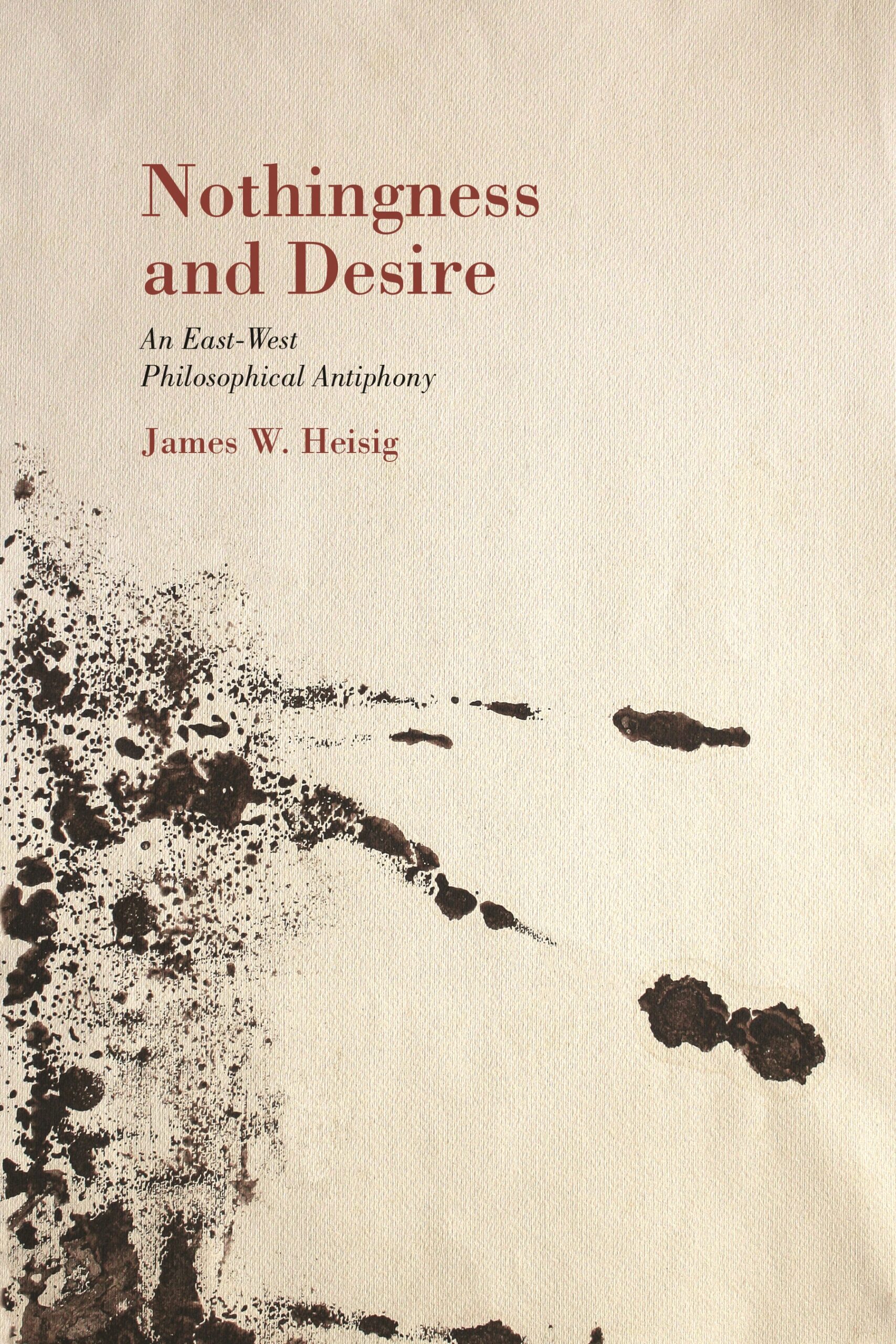Nothingness and Desire: A Philosophical Antiphony
- About the Book
-
The six lectures that make up this book were delivered in March 2011 at London University’s School of Oriental and Asian Studies as the Jordan Lectures on Comparative Religion. They revolve around the intersection of two ideas, nothingness and desire, as they apply to a re-examination of the questions of self, God, morality, property, and the East-West philosophical divide.
Rather than attempt to harmonize East and West philosophies into a single chorus, Heisig undertakes what he calls a “philosophical antiphony.” Through the simple call-and-response of a few representative voices, Heisig tries to join the choir on both sides of the antiphony to relate the questions at hand to larger problems that press on the human community. He argues that as problems like the technological devastation of the natural world, the shrinking of elected governance through the expanding powers of financial institutions, and the expropriation of alternate cultures of health and education spread freely through traditional civilizations across the world, religious and philosophical responses can no longer afford to remain territorial in outlook. Although the lectures often stress the importance of practice, their principal preoccupation is with seeing the things of life more clearly. Heisig explains:
“By that I mean not just looking more closely at objects that come into my line of view from day to day, but seeing them as mirrors in which I can see myself reflected. Things do not just reveal parts of the world to me; they also tell me something of how I see what I see, and who it is that does the seeing. To listen to what things have to say to me, I need to break with the habit of thinking simply that it is I who mirror inside of myself the world outside and process what I have captured to make my way through life. Only when this habit has been broken will I be able to start seeing through the reflections, to scrape the tain off the mirror, as it were, so that it becomes a window to the things of life as they are, with only a pale reflection of myself left on the pane. Everything seen through the looking glass, myself included, becomes an image on which reality has stamped itself. This, I am persuaded, is the closest we can come to a ground for thinking reasonably and acting as true-to-life as we can.”
- About the Author(s)
-
James W. Heisig, Author
James W. Heisig is a permanent research fellow at the Nanzan Institute for Religion and Culture in Nagoya, Japan.Paul L. Swanson, Series Editor
Paul L. Swanson is a Permanent Research Fellow at the Nanzan Institute for Religion and Culture, Nanzan University.
- Reviews and Endorsements
-
- Nothingness and Desire is a very worthwhile and stimulating read. It traces many of the problems of the East-West comparative discourse. It opens up the pathways that Professor Heisig reinvigorates for (as he himself suggests) the next generation of philosophers. His creativity deserves praise, and it makes demands on the next generation to open up further cross-cultural ‘ways’ and to be as creative in our explorations of them as he is with his.
—Philosophy East & West - Nothingness and Desire offers a valuably direct immersion in East-West philosophical exchange and its real potential for tackling pressing political problems (beyond the platitudes that sometimes afflict inter-religious dialogue). It is valuable too for the quality of the insights into human life that emerge in the course of the analysis.
—Japanese Journal of Religious Studies
- Nothingness and Desire is a very worthwhile and stimulating read. It traces many of the problems of the East-West comparative discourse. It opens up the pathways that Professor Heisig reinvigorates for (as he himself suggests) the next generation of philosophers. His creativity deserves praise, and it makes demands on the next generation to open up further cross-cultural ‘ways’ and to be as creative in our explorations of them as he is with his.
- Supporting Resources
-






